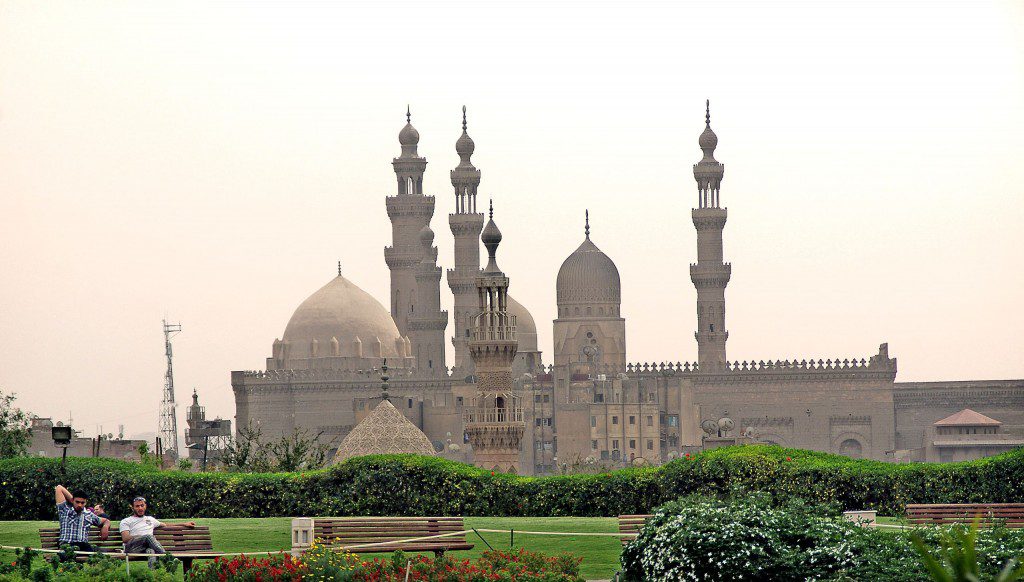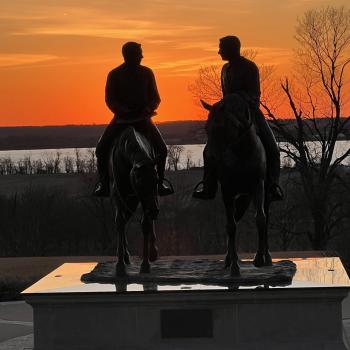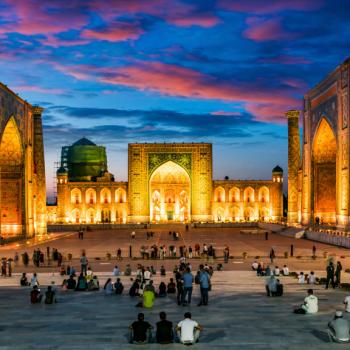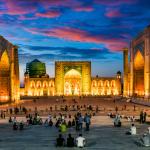
Brian Thompson has asked my opinion of a Prager University video done by Ayaan Hirsi Ali:
“Is Islam a Religion of Peace?”
It’s an interesting video, about 5:10 minutes long, and I recommend it for your viewing. (More than thirteen million people have already watched it.)
Here’s my brief response:
I see little in it with which I disagree.
I concur, for example, that Islam should not be called a “religion of peace.” Of course, that’s partly because of the violence that has swirled around Islam and the Islamic world over the past several decades. But it’s also, to a significant degree, because I’m uncomfortable referring to Islam as if it were a monolith. There are substantial and significant differences between the Wahhabi Islam of Saudi Arabia and the mystical Islam of the Mevlevis, for example; between Islam as taught by the Taliban and that taught by the late Abdurrahman Wahid of Indonesia (whom I once had the privilege to host at BYU); between the Islam of Muhammad Iqbal or Khaled Abou El Fadl, on the one hand, and, on the other, that of Abu Bakr al-Baghdadi. (For the record, by the way, I also wouldn’t call Christianity, as a whole, a “religion of peace.” There have been too many counterexamples — the Crusades, for instance, and the Inquisition, the Conquest of the Americas, and the Thirty Years’ War — for me to sign on to such a description.)
I agree that the world of Islam requires a kind of reformation, and that such reformation, as Ms. Hirsi Ali herself says, is possible. It has taken Christendom a long while to arrive at where it is today — actually, and unfortunately, I think that we may now be heading downhill from the highpoint of our toleration, open-mindedness, and mutual respect — and, with its very different history, the Islamic world has some distance to travel before it reaches the optimum in that regard. But the West wasn’t born free or non-violent, either. And it’s never been perfect.
I concur that we should be supportive of reformers and, where wise and right, of dissidents in the Islamic world. I like her specific mention of Dr. Zuhdi Jasser, with whom I’ve twice shared dinner tables and speaking platforms. While I’m sympathetic to Islam as a whole and to Muslims, I’m certainly not unaware of the vast problems and dysfunctions of the contemporary Islamic world.
I’m not surprised at her criticisms of the West, and particularly of Western politicians and intellectuals, for their failure to handle the problem of Islamist extremism with honesty and integrity. I suppose that I’m an intellectual — my life revolves to a large degree around books, words, and ideas — and I’m certainly an academic (though, as some of my critics like to point out, a very mediocre one). But I do not hold intellectuals and academics in awe, and my social class has, on the whole, a very sorry record when confronted by political thugs and oppressive dictators. (For a very interesting recent discussion of this matter, see Theodore Dalrymple’s “Rare and Common Sense,” in the November 2017 issue of First Things.)
***
On a related matter: Since the mass terrorist murders in New York City yesterday afternoon, the national media have largely been focused on that story. Wall to wall. Without let-up. And despite the fact that there are other stories, very major stories, in play (e.g., the Mueller indictments and a massive new tax-reform proposal.)
I certainly don’t think that news of the murders should be suppressed, but . . . well — and I know that this will sound callous — people are murdered every day in such cities as Chicago, New York, Los Angeles, and Washington DC. I also freely grant that the specific method of murder used here — a rental vehicle running pedestrians, joggers, and cyclists down — is very troubling. It’s been used in Europe, it’s now arrived here, and it’s very difficult to prevent or to defend against. This will require much thought.
But . . . By giving the incident such enormous coverage, don’t we play into the hands of its perpetrator and its encouragers? Isn’t this the reaction they want? “The purpose of terror,” Lenin is reported to have remarked, “is to terrorize.” They’re getting enormous publicity out of this, which plays into both their propaganda goals and their recruitment strategy.
***
Finally, I would like to recommend this wonderful 25-minute BYU-Radio interview, from a program titled In Good Faith, with my friend Shereen Salah, an Egyptian Muslim woman who teaches Arabic at Brigham Young University:
https://www.byuradio.org/episode/e3530725-ab31-44d2-b24b-778b4da68e75/in-good-faith-shereen-salah
Are you curious about Islam? Worried about it? Your time would be well spent hearing an actual Muslim (and a really good person) speak for herself.
I highly recommend this interview.
The second part of the 56-minute program is a kind of response to the interview with Shereen. Also very good and highly recommended.
















